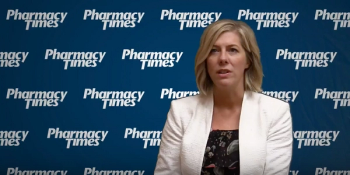
Jennifer Zilka, Vice President of Business Coaching and Pharmacy Ownership for Good Neighbor pharmacy, speaks about the growth and evolution of the Business Coaching Program.

Jennifer Zilka, Vice President of Business Coaching and Pharmacy Ownership for Good Neighbor pharmacy, speaks about the growth and evolution of the Business Coaching Program.

Priority One™ leverages the power and reach of Pharmacy Times®, the most-trusted pharmacy resource, to deliver messages to a selectively targeted proprietary list of decision-makers.

The popular “Vision” pavilion will return to the Exhibit Hall at the 2017 National Association of Chain Drug Stores (NACDS) Total Store Expo, which will be held at the San Diego Convention Center from August 19 – 22.

A key factor in addressing these traceability issues, Horvath said, has been the continuous improvement program, implemented 2 years ago at AmerisourceBergen and developed with the goal to enhance customer experience.

“Don’t be afraid to reach out and talk to your elected officials, whether on a federal, local or state level,” Boehner said.

Charlie Le Bon, the Director of Pharmacy Ownership for AmerisourceBergen, discusses recent changs in the pharmacy landscape.

A vast buyer network can assist with purchasing community pharmacies.

Only a small portion of pharmacists are politically involved.

Each finalist was chosen out of 50 nominees.

The challenges are well-documented, but additional acccess to data is assisting the independent pharmacist.

Charlie Le Bon, who is Director of Pharmacy Ownership with AmerisourceBergen, shares his insights on the current state of the pharmacy business marketplace.

Steven Scott, PharmD, President of the American Association of Colleges of Pharmacy (AAC), discusses what opportunities are available to pharmacy students interested in pursuing a career in pharmacy education.

Since the 2016 launch of AmerisourceBergen’s ABC Order, many within the organization have come to see the ordering platform as the first step in a larger effort to improve the experience of independent pharmacists.

In this clip, Rabia Atayee, PharmD, president of the Society of Palliative Care Pharmacists, discusses training opportunities available for pharmacists interested in palliative care.

Lucinda Maine, PhD, RPh, Executive Vice President and CEO of the American Association of Colleges of Pharmacy (AACP), discusses how emerging trends in health care could impact pharmacists and their practice.


Nicholas Popovich, Phd, Associate Dean of Professional Development at the University of Illinois, is the recipient of the American Association of Colleges of Pharmacy (AACP) 2017 Lifetime Achievement Award.

In this clip, Ron Jordan, RPh, FAPhA, Dean of Chapman University School of Pharmacy, gives his take on the future job outlook for pharmacists and how jobs in pharmacy are changing.

Wilson M. Compton, MD, MPE, Deputy Director of the National Institute on Drug Abuse (NIDA) of the National Institutes of Health, addressed pharmacists about their roles in curbing the opioid crisis at the American Association of Colleges of Pharmacy (AACP) annual meeting.

Lucinda Maine, Phd, RPh, Executive Vice President and CEO of the American Association of Colleges of Pharmacy (AACP), discusses how pharmacists can promote the value of the profession to their patients and the public.

Nicholas Popovich, Phd, Associate Dean of Professional Development at the University of Illinois, is the recipient of the American Association of Colleges of Pharmacy (AACP) 2017 Lifetime Achievement Award. In this clip, Dr. Popovich offers advice to recent graduates and new pharmacists embarking on their careers.

In this clip, Stefanie Ferreri, PharmD, clinical professor at UNC Eshelman School of Pharmacy, talks about how community pharmacists can work to advance the profession and change how community pharmacy is portrayed.

In this clip, Melissa Hogan, PharmD, Dean of Roosevelt University College of Pharmacy, shares some advice for pharmacy students and pharmacy school graduates on how to stand out to employers in the job market.

Throughout his career, Brian Nightengale, PhD, has bared witness to many of the changes and challenges experienced by independent pharmacists.

Results of 2017 Kantar Media Readership Survey demonstrate publication's ongoing valuable leadership among retail pharmacists.

Few students when they graduate from pharmacy school have had little exposure to veterinary medications.

When palliative care is involved, they address the physical, as well as psychosocial symptoms, to improve quality of life.

The American Association of Colleges of Pharmacy (AACP) has announced that Senior Director of Academic Affairs Cecilia M. Plaza, PharmD, PhD, is the first pharmacist chosen to participate in the ASAE Diversity Executive Leadership Program (DELP) as a Scholar for 2017-2019.

As independent pharmacy continues to evolve, pharmacy owners face both a potential for growth and obstacles to overcome to enable that growth.

The American Association of Colleges of Pharmacy (AACP) is holding its annual meeting from July 15-19, in Nashville, Tennessee.